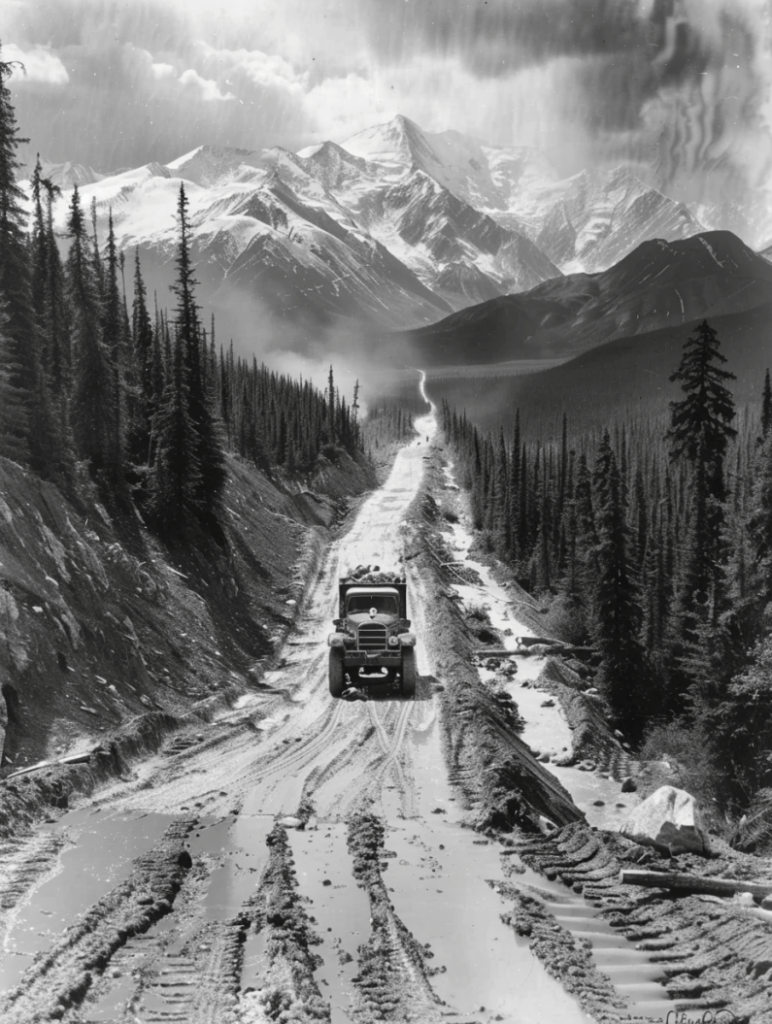On This Day, March 9, 1942, amid the fraught circumstances of World War II, construction officially began on an ambitious infrastructure project – the Alaska Highway. This rugged overland route would connect the contiguous United States to Alaska through Canada’s remote northern wilderness.
The impetus was to establish a land supply route to Alaska after the Japanese attack on Pearl Harbor in 1941. With the Pacific sea lanes in jeopardy, the U.S. military deemed a northern road link vital for transporting troops, equipment and resources to protect the Alaskan territory.
Over 10,000 U.S. Army soldiers and civilian contractors undertook this daunting task under strict time pressures. They endured brutal conditions, cutting their way through 1,700 miles of rugged mountain ranges, muskeg and permafrost of western Canada and east-central Alaska.
The construction process was an immense logistical challenge in the unforgiving northern climate. But within an astonishing eight months and 12 days, the initial phase was completed, establishing a basic road connection on November 20, 1942 at a cost of over $138 million.
While intended as a wartime supply road, the Alaska Highway assumed great peacetime importance. It opened up economic opportunities, allowing resources to flow between Alaska, Canada and the lower 48 states. Today, it retains significance as a highway system that overcame remarkable terrain and adversity to unite far-flung regions.
